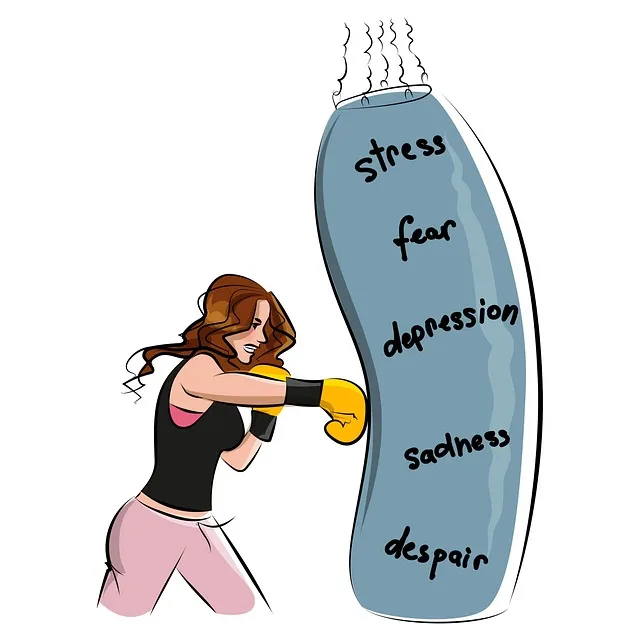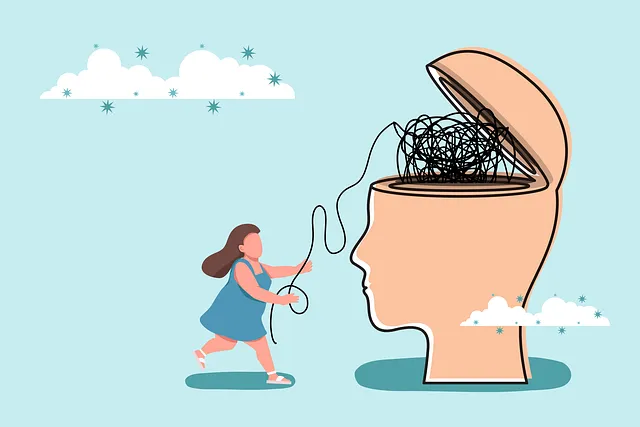The Longmont Kaiser Permanente (LKP) Mental Health Center offers effective mental wellness coaching, backed by positive reviews and evidence-based practices. Through personalized goal-setting and techniques like Mindfulness Meditation, their programs empower individuals to manage stress, anxiety, and depression. LKP's dedicated team provides services focusing on self-esteem, conflict resolution, and crisis intervention, promoting long-term resilience and overall well-being. The center's strategic curriculum, interactive workshops, and open communication foster emotional regulation and positive coping mechanisms, as highlighted by their reviews. Regular feedback from clients is crucial for improving programs like Coping Skills Development and Self-Esteem Improvement, ensuring tailored approaches that resonate with participants.
“Mental wellness coaching programs have emerged as a powerful tool for personal growth, especially in corporate settings. This article explores the concept of mental wellness coaching, focusing on its role in supporting individuals’ mental health journeys. We’ll delve into the success of the Longmont Kaiser Permanente Mental Health Center and its innovative approach to patient care. By examining real-world examples and expert insights, we’ll uncover the benefits, key components, and continuous improvement strategies for designing effective coaching curricula.”
- Understanding Mental Wellness Coaching: Definition and Purpose
- Longmont Kaiser Permanente Mental Health Center: An Overview
- Benefits of Coaching Programs for Mental Health Improvement
- Designing Effective Coaching Curricula: Key Components
- Integrating Feedback and Review Systems for Continuous Improvement
Understanding Mental Wellness Coaching: Definition and Purpose

Mental wellness coaching is a supportive process that empowers individuals to enhance their overall mental well-being and resilience. It involves guiding people through various evidence-based practices, such as Mindfulness Meditation, to improve emotional intelligence and foster self-awareness exercises. The primary purpose of this approach is to help clients navigate life’s challenges and develop sustainable coping strategies.
At the Longmont Kaiser Permanente mental health center, reviews highlight the effectiveness of their coaching programs in promoting mental wellness. Coaches work collaboratively with individuals to set personalized goals, offering tools and techniques to manage stress, anxiety, and depression. By integrating Emotional Intelligence and Self-Awareness Exercises into their practice, these coaches enable clients to gain deeper insights into their thoughts and emotions, leading to improved decision-making and overall life satisfaction.
Longmont Kaiser Permanente Mental Health Center: An Overview

The Longmont Kaiser Permanente Mental Health Center stands as a beacon of hope and healing for individuals seeking support for their mental wellness journey. Located in Longmont, Colorado, this center offers a comprehensive array of services designed to cater to diverse mental health needs. With a dedicated team of professionals, it provides a safe and supportive environment for patients to explore and address their psychological challenges.
Reviews highlight the center’s exceptional care, particularly its focus on empowering individuals through self-esteem improvement programs. The mental wellness coaching offered includes conflict resolution techniques and crisis intervention guidance, ensuring patients gain practical tools to navigate life’s hurdles. By combining evidence-based practices with a compassionate approach, Longmont Kaiser Permanente Mental Health Center aims to not only treat symptoms but also foster long-term resilience and overall well-being.
Benefits of Coaching Programs for Mental Health Improvement

Mental wellness coaching programs offer a supportive space for individuals to explore and improve their emotional well-being. These structured sessions facilitate personal growth by providing tools and strategies to manage stress, anxiety, and other mental health concerns. At Longmont Kaiser Permanente mental health center, reviews highlight the positive impact of such programs in empowering individuals to take control of their mental health.
Coaching goes beyond traditional therapy by focusing on goal setting and action planning. It teaches effective coping mechanisms, enhances self-awareness, and fosters resilience. By combining evidence-based practices with personalized guidance, coaching programs can effectively prevent depression and promote emotional well-being. Additionally, community outreach program implementation can extend these benefits to a wider population, ensuring that support is accessible to those who may not traditionally seek mental health services.
Designing Effective Coaching Curricula: Key Components

Designing an effective mental wellness coaching program involves curating a curriculum that addresses core aspects of psychological well-being. A comprehensive approach should incorporate strategies for stress management, emotional regulation, and fostering positive coping mechanisms. At the Longmont Kaiser Permanente mental health center, reviews highlight the impact of tailored programs in enhancing patient outcomes. This can be achieved through interactive workshops focusing on techniques like mindfulness, cognitive reframing, and conflict resolution skills. These tools empower individuals to navigate challenges more effectively, thereby reducing risk factors associated with poor mental health.
Additionally, effective curricula should prioritize the development of strong therapeutic alliances, encouraging open communication and fostering an environment of trust and empathy. Incorporating risk management planning for mental health professionals is vital to ensure safe and ethical practices. Mental health awareness training can also benefit both coaches and clients by promoting understanding of various conditions and breaking down stigma. Conflict resolution techniques further enrich the program by teaching participants how to navigate disagreements constructively, contributing to improved relationships and overall mental wellness.
Integrating Feedback and Review Systems for Continuous Improvement

At the Longmont Kaiser Permanente mental health center, reviews play a pivotal role in shaping and enhancing their coaching programs. By integrating robust feedback systems, the center ensures that coaches continually improve their techniques based on client experiences. This ongoing evaluation involves gathering insights from participants through various channels, including online platforms and direct communication. Such reviews allow for the identification of program strengths and areas needing adjustment, fostering a dynamic environment that caters to evolving mental health needs.
Regular feedback mechanisms enable the Stress Management Workshops Organization to facilitate Coping Skills Development and Self-Esteem Improvement initiatives effectively. Through constructive criticism and praise, coaches can tailor their approaches, ensuring each session resonates with attendees. This adaptive approach not only improves individual outcomes but also contributes to the overall success of the coaching programs, making them more responsive and impactful in the eyes of participants, as reflected in Longmont Kaiser Permanente mental health center reviews.
Mental wellness coaching programs, as demonstrated by the innovative practices at the Longmont Kaiser Permanente Mental Health Center, offer significant benefits in promoting mental health improvement. By integrating key components such as tailored goals, active listening, and evidence-based techniques, these programs can effectively support individuals in navigating their mental health journeys. Continuous improvement through feedback and review systems further enhances their efficacy. For those seeking comprehensive mental wellness support, Longmont Kaiser Permanente mental health center reviews highlight the positive impact of these coaching programs, making them a valuable resource for fostering resilience and overall well-being.






